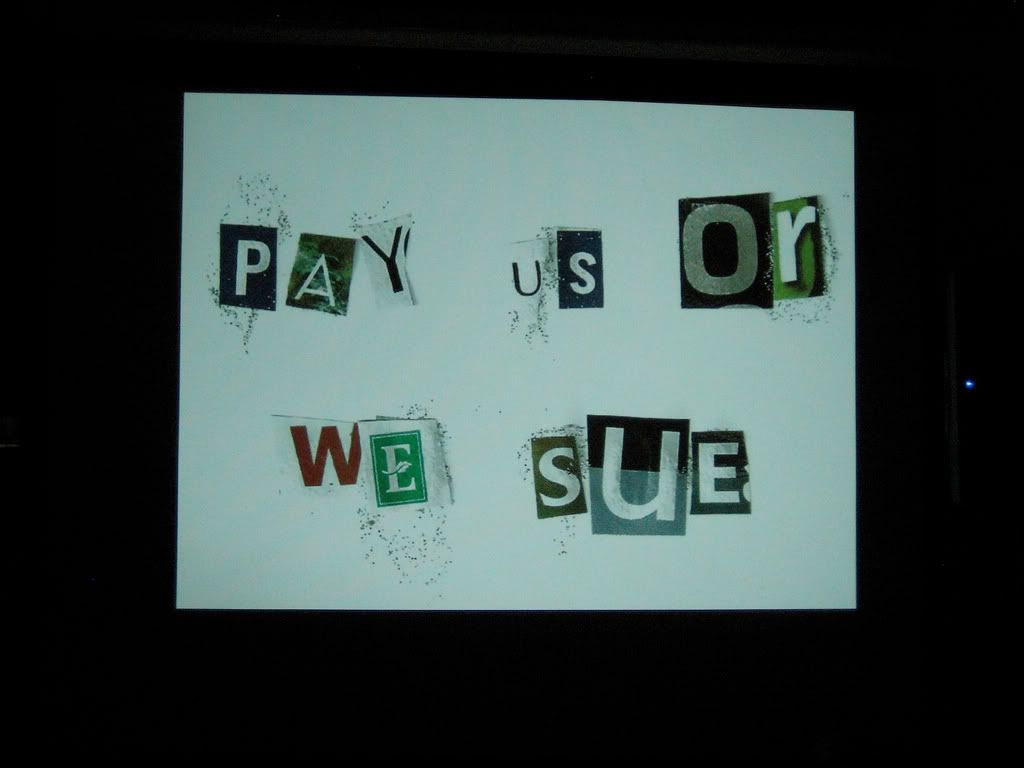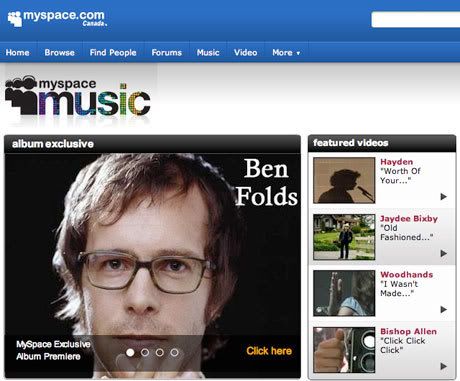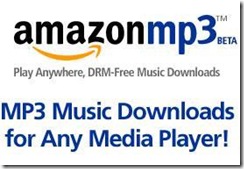
[Boring Editorial Update: Changed the title of this post because it sounded too similar to the previous post]
For months I've been reading lots of buzz about Spotify, the music software that allows users unlimited streaming from a catalog of over six million tracks and is being dubbed around the Blogosphere as potentially the first real threat to Apple's iTunes empire. As of now, Spotify is only legally available for free (with advertisements) in the UK, Finland, Norway, Sweden, and Spain, with users in most of Western Europe allowed premium (ad-free) access for a monthly fee. You'll notice the US is conspicuously absent from the list of officially-sanctioned countries, as the RIAA and Spotify are still in negotiations for US licensing deals.
Determined to try the service for myself, I utilized a workaround for creating my own account that took advantage of the 14 day "travel access" window allowed to all free account users (premium subscribers have no cap). Basically I spoofed a UK IP address and used it to activate my account. Unfortunately, as of yesterday, free accounts from anywhere require an invite code, so if any of you US-based people want to try the service out yourself, you're shit out of luck for now. Never fear, I've been using Spotify for nearly a month and I can tell you exactly how much of a "game changer" it really is (or isn't).
First off, the catalog of songs is quite impressive and can easily lead a music nerd like me to spend two hours following the breadcrumbs to more and more new music. For example, I am currently working on a playlist of nothing but awesome 90's Hip Hop songs, but the music library on my computer doesn't have as much 90's music as I would like, so instead of spending weeks hunting down songs via the iTunes, Amazon, and torrent trackers I just fire up Spotify and search for almost anything I want. This inevitably results in me veering off course as one artist conjures up nostalgia for another. Most of the time I find whatever pops into my head, it's not perfect, but no worse than the alternatives and almost as good as OiNK (RIP -ed.) used to be.
Why is it so easy to wander off into tangential directions? Because Spotify's user interface is laughably easy to learn. This is a major component of it's potential to lure users away from the iTunes ecosystem. Everything is powered by the search box and the left navigation pane, without the clutter of many images and buttons vying for your attention (look at the iTunes Store home page to see what chaos looks like). Spotify always displays the last five items searched in the left pane, so if you do stroll away from the path it's easy to find your way back. Another helpful feature are the Similar Artist links that appear at the top of most artist pages. Clicking on these links can open your ears to new music you previously had not heard or even didn't know existed.
Listening to songs is nice, but if Spotify is going to be the 'iTunes killer' some have made it out to be, then it needs to give users easy access to repeatedly listen to the music they like. This is where the Spotify shows the bulk of it's promise, but with one big caveat--mobility. See, right now I can only enjoy this music on my computer. Downloading these tracks to my hard drive is out of the question, unless I want to purchase them from 7Digital.com (the only store integrated with Spotify), which is a nice store but definitely not as robust of a catalog as other competitors.
In fact, most of the songs in my playlists cannot be purchased through Spotify, which means I have to find them elsewhere (torrents, iTunes, etc.) if I want to enjoy them on my iPhone...today, that is. As of last week mobile apps for iPhone and Google's Android platform are available, but only for users in officially-sanctioned countries (i.e. not the US) and only for premium subscribers. This means I haven't been able to take the iPhone app for a spin, but the video demo below illustrates how immensely convenient it makes it to enjoy your music wherever you are.
That offline access perhaps the most significant feature Spotify has that other streaming apps (imeem, last.fm, Pandora, etc.) have yet to figure out and it's the one thing that should make Apple nervous. Now, as long as users sync everything while they have access to a wireless connection (much like syncing music with iTunes before you leave the house), their music will always be up to date. It's a type of convenience that hasn't been seen before and it has the potential to change how we consume music, but will it make any money?
That last question is tough to answer. I do know that most users will always choose to tolerate some ads in exchange for free content, but ad-supported business models need a certain percentage of users to pony up for premium content in order to stay solvent. So far the added value of paying for a service that is mostly usable for free hasn't swayed enough users from the competition to part with their hard earned cash, but none of those services offer the convenience, sound quality, and speed (did I mention, Spotify is P2P-based, and thus has near instant buffering?) that Spotify does. For this reason, I think it would be a smart business decision for mobile access to always be a feature for premium users. Or perhaps they could strike a compromise and offer a "Lite" version of the app for free users that doesn't allow offline listening?
Whatever the case, Spotify's long-term outlook depends on how much revenue they can generate for their content partners. In fact, there's already talk about tweaking the business model before the curtain rolls up on US availability. The bulk of this revenue will have to come from the number of users that can be converted to paid subscribers, but people aint gonna pay unless it truly makes the service noticeably better. Perhaps if they could envision a world in which virtually any song they want can be accessed from their phone and their own library always stays sync'd no matter where they are, then parting with the cash would seem like a smart choice. Spotify might not be there today, but it's the first service I've seen with a puncher's chance of making that vision a reality.





 Instead of asking consumers to name their own price, Reznor decided to offer Ghosts in a variety of formats (high quality 320kbps MP3, FLAC or Apple Lossless) and packages, ranging from free to uber-expensive. For the casual fan there's a free download of Ghosts I, which includes eight tracks, available through NIN.com or via bit torrent networks. In the coming weeks parts II-VI will be made available for free download. While those who want the complete four part collection can download it through the Nine Inch Nails website or the
Instead of asking consumers to name their own price, Reznor decided to offer Ghosts in a variety of formats (high quality 320kbps MP3, FLAC or Apple Lossless) and packages, ranging from free to uber-expensive. For the casual fan there's a free download of Ghosts I, which includes eight tracks, available through NIN.com or via bit torrent networks. In the coming weeks parts II-VI will be made available for free download. While those who want the complete four part collection can download it through the Nine Inch Nails website or the 

 OK, so I am officially retiring the name "Throwin' It Down" for my weekly collection of links. I never really liked that name and I don't even have a good reason for using it in the first place. Instead, I have decided to go with a title that is far more direct and to the point. All references to "Throwin' It Down" will henceforth be erased from the record. Anyway, on to the links...
OK, so I am officially retiring the name "Throwin' It Down" for my weekly collection of links. I never really liked that name and I don't even have a good reason for using it in the first place. Instead, I have decided to go with a title that is far more direct and to the point. All references to "Throwin' It Down" will henceforth be erased from the record. Anyway, on to the links...